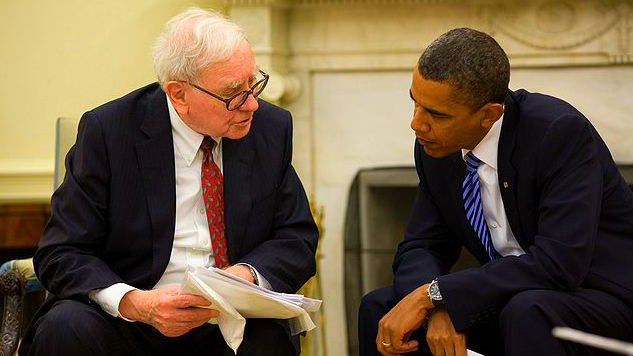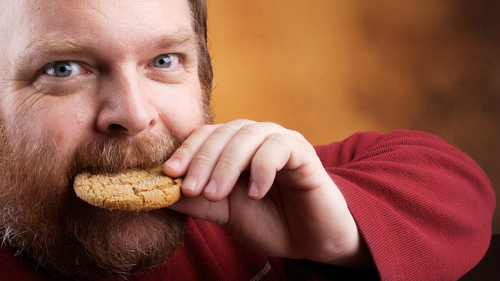What’s the Big Idea? Astrophysicist Neil deGrasse Tyson believes in the power of science — so much so that he gets hate mail for it. From children. As director of […]
Search Results
You searched for: More From Big Think
The ultimate goal of any education system should be to give people the opportunity to find and bring to life that which motivates them intrinsically.
A European institute in Singapore wants to help ease the world’s transition toward massively populated urban centers. Of the 8.1 billion people on Earth by 2030, 5 billion will live in cities.
In question is nothing less than the nature of literature from an evolutionary perspective.
So of all the sundry commentaries on young Obama as literary man, the one that’s impressed me the most (except, of course, for my own) is the one by the […]
A unique history is what distinguishes one family from another, and knowing a family’s distinct set of stories is what binds the group together. While social media connects the larger society, genealogical work is what connects us to our own small group.
Once again, I’ve gotten enmeshed in a debate on Twitter. This time it wasn’t with a theist, but with two atheists, Daniel Loxton and Reed Esau. It started with these […]
What is the Big Idea? Leaders from many western hemisphere countries gathered for the Summit of the Americas meeting this weekend to discuss alternatives to the failed “war on drugs.” President Obama […]
Maybe the brain evolved a lot like the way big pieces of software get developed.
What is the Big Idea? A new ad released by Rick Santorum’s campaign team inserted President Obama’s face for a split-second into a montage about Iranian leader Mahmoud Ahmadinejad. The […]
If you’re an American, you probably know that this week is income-tax time. (If you didn’t already know that, sorry to tell you, but you missed the deadline.) Most people […]
Former Wall Street Journal reporter Pamela Druckerman moved to France in 2003 and discovered that French children were much better behaved than American kids. Here’s what she brought back with her.
The line of battle for the future of public education is clear. The first side has money, powerful political connections, and an infrastructure of nonprofit organizations with paid staff. The other side has this: the ability to become a true grassroots movement.
When a couple philosophers weigh in on the moral implications of having children, they reach some alarming conclusions. Might the Universe be better off without the human race?
I’ll be honest. I’d hoped to hold out a bit longer before falling back on this staple of any Asian culture column, but it was unavoidable in this case. The […]
President Obama apparently thinks the safer way to justify higher taxes on the super rich is to pitch the proposal based on its deficit-reduction potential. But if he wants to get the ball rolling for meaningful tax reform, Obama will summon his rhetorical powers to explain how the Buffett Rule could help reduce the nation’s massive and destructive wealth inequality.
Big Think’s “Book of the Month” for March is The Start-Up of You, by Reid Hoffman and Ben Casnocha. For a quick overview and outline of their new ingredients for success, […]
What trait will serve you the most as a school leader? There is no shortage of lists extolling the most important knowledge, skills, and abilities that school leaders should hold. […]
What is the Big Idea? The United States is ready for terrorist attacks and natural disasters, according to a new report by the Federal Emergency Management Agency (FEMA). But where […]
Eastern Europe shares common positive characteristics that not only distinguish it from Western Europe, but also from most of the world. During the twentieth century, few regions on the planet […]
Do you know what is in your digital dossier? Since you began to have a life on the Web, data has been accruing about the habits and interests of your […]
As Yogi Berra said of baseball, it is 90 percent mental, and “the other half is physical.” This ‘Yogi-ism’ is equally applicable to tennis, a sport in which elite players need to be “intuitive physicists” in order to win at the highest level.
A subtle but undeniable shift has been taking place in American corporate management theory. Roughly, the change corresponds to psychology’s shift from punishment & reward focused Skinnerian behavioralism to a focus on human relationships and development.
“Who is it?” is often as big a question for art historians as “Who done it?” The mysterious model of many a famous painting—perhaps none so mysterious as the Girl […]
Today as I meditate on Arum and Roksa’s much-discussed study, “Academically Adrift: Limited Learning on College Campuses,” my thoughts turn to academic life at the institution where I teach. This week […]
The idea of creating mixed boards is gaining significant traction, due to several key global trends.
What matters in life? Will Wilkinson wrote wrote a nice Big Think post on Friday quoting some recent psychological research and suggesting the answer is “memorable social experience”: A number […]
When last we heard from him, experimental philosopher Jonathon Keats was building a celestial observatory for cyanobacteria. From their petri dishes, billions of these microorganisms would study images from the Hubble telescope, coming to conclusions unavailable to our more highly developed brains. Months later, they’re still at it, and we can barely begin to imagine what they are thinking.
A survey for Birmingham Science City amongst 500 15 year-olds across the UK came up with some pretty telling numbers about how technology changes society at its roots. When asked […]
New York Times investigative reporter Charles Duhigg has drawn together the most cutting edge research on why habits exist and how they can be changed. How can you apply the science to your own life?





























